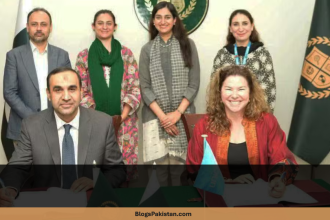In the bustling streets of Lahore and the vibrant neighborhoods of Mumbai, Mental Health a silent epidemic brews beneath the surface of cultural pride and tradition . Across Pakistan and India, societal expectations around marriage are not just shaping lives—they’re breaking spirits. From relentless dowry demands to the race against biological clocks, the weight of conformity is leaving deep psychological scars. Let’s explore how these pressures are reshaping mental health landscapes in two of South Asia’s most populous nations.
The Weight of Tradition: Marriage as a Social Contract
Arranged Marriages: More Than Just a Union
In Pakistan and India, marriage is rarely a simple love story. Over 80% of unions here are arranged, woven into a fabric of family honor, caste considerations, and economic strategy. Young adults—especially women—are thrust into a system where personal choice often bows to communal expectations. By their early 20s, many face a ticking clock, with families aggressively seeking “suitable” matches to avoid social stigma.
The process is transactional. In Pakistan’s rishta culture, proposals hinge on superficial metrics: a woman’s complexion, her salary, or the size of her dowry. Similarly, India’s caste-driven matchmaking often reduces individuals to checkboxes on a societal ledger. This commodification leaves little room for emotional compatibility, setting the stage for fractured relationships.
The Commercialization of Matrimony
Dowry practices, though illegal, remain entrenched. In rural Punjab, families mortgage land to fund lavish gifts—from luxury cars to gold jewelry—to appease grooms’ families. Meanwhile, Indian brides report escalating demands, with some grooms’ families requesting everything from overseas vacations to startup investments.
This financial arms race has dire consequences. A 2022 survey revealed that 60% of Pakistani families take loans to fund dowries, plunging them into debt. In India, dowry-related disputes account for nearly 20% of reported crimes against women, according to the National Crime Records Bureau.
The Invisible Scars: Mental Health Under Societal Strain
The Race Against Time: Age and Marriage Pressures
“Why aren’t you married yet?” For millions of South Asian women, this question becomes a haunting refrain by their mid-20s. Societal clocks tick louder than biological ones, with unmarried women labeled beyhaya (shameless) in Pakistan or spinster in India.
The psychological toll is staggering. Young women report panic attacks during rishta meetings, while others develop eating disorders to meet beauty standards. A Karachi-based therapist shared, “I’ve treated PhD students who feel like failures because they’re 28 and unmarried.” In India, suicide rates among unmarried women under 30 are 1.7 times higher than their married peers, per a 2023 Lancet study.
When Vows Become Chains: Marital Dissatisfaction
Arranged marriages often become pressure cookers of unmet expectations. In Pakistan, 40% of women in such unions report clinical depression symptoms, citing lack of emotional intimacy and domestic abuse. “I married a stranger,” confessed a 26-year-old from Islamabad. “Now we sleep in separate rooms, but divorce isn’t an option—my family would disown me.”
India sees parallel trends. A 2021 mental health review found women in traditional marriages are three times more likely to develop anxiety disorders. Strict gender roles—women as submissive homemakers, men as breadwinners—fuel resentment. “I gave up my teaching job because his family said it looked bad,” an Indian homemaker revealed. “Now I cry every morning.”
The Dowry Dilemma: Economic Strains and Emotional Scars
Dowry isn’t just a financial burden—it’s emotional blackmail. Brides who bring “insufficient” dowries face humiliation, from snide remarks to outright violence. In Pakistan’s Sindh province, 34% of domestic violence cases stem from dowry disputes. Indian newlyweds describe being paraded before in-laws to justify each gift’s monetary value.
The fallout extends beyond brides. Parents of daughters face chronic stress, with many delaying retirement or selling ancestral homes. “I’ve been saving for my daughter’s dowry since her first birthday,” admitted a Delhi shopkeeper. “It’s like a shadow chasing us.”
Barriers to Healing: Stigma and Lack of Support
Cultural Stigma Around Mental Health
“Log kya kahenge?” (What will people say?) This fear of judgment silences millions. In Pakistan, depression is often dismissed as dimaghi kamzori (weak-mindedness), while Indians may attribute anxiety to “bad karma.” Families pressure sufferers to hide symptoms, fearing marital prospects will dwindle further.
A Lahore-based psychiatrist noted, “Parents bring depressed daughters saying, ‘Just give her sleeping pills—we need her married by Eid.’” Tragically, this stigma has lethal consequences: WHO estimates 78% of South Asians with Mental Health disorders never seek professional help.
Systemic Gaps in Mental Health Care
Infrastructure deficits compound the crisis. Pakistan has fewer than 500 psychiatrists for 230 million people. India’s ratio isn’t much better—0.75 psychiatrists per 100,000 citizens. Rural areas suffer most, with villagers traveling hours to access basic counseling.
Even when help is available, cultural mismatches persist. “Western therapy models assume individualism,” explained a Mumbai counselor. “Here, we treat families, not just patients.” Few local therapists are trained in culturally sensitive approaches, leaving many feeling alienated.
Pathways to Change: Grassroots Movements and Digital Hope
Amid the gloom, sparks of resistance emerge. Pakistani NGOs like Aurat Azadi run workshops challenging dowry culture, while India’s Breakthrough India uses Bollywood-style videos to redefine marital norms. Social media communities—from Facebook’s “Arranged Marriage Survivors” to TikTok therapists—offer safe spaces for venting and advice.
Mental Health
Urban youth are rewriting rules. Matchmaking apps like Sima Taparia’s “Indian Matchmaking” fame now include filters for “mental health awareness” and “egalitarian values.” In Lahore, a new generation of parents hosts rishta mixers where singles chat freely—a radical departure from spreadsheet-based matchmaking.
Yet systemic change remains slow. Activists urge governments to enforce dowry bans and fund mental health initiatives. “We need more than laws,” stresses a Delhi-based advocate. “We need to rebuild how societies value self-worth over social checkboxes.”
As monsoon clouds gather over Karachi and Kolkata, millions still whisper their struggles behind closed doors. But with every TikTok video challenging stigma, every daughter who says “no” to a toxic match, the chains of conformity grow weaker. The road ahead is long, but for the first time, hope flickers on the horizon.










